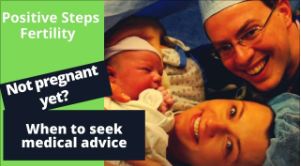For many women, trying to conceive can feel like an emotional rollercoaster—especially when the cause of infertility is unclear. One often overlooked factor that can significantly impact fertility is thyroid health. The thyroid, a small butterfly-shaped gland located at the base of the neck, plays a crucial role in regulating metabolism, energy levels, and overall hormonal balance. The thyroid also has a powerful effect on reproductive health.
Understanding the Importance of Thyroid Health for Fertility
Thyroid hormones influence the function of the ovaries, uterine lining, and even egg quality. This intricate relationship means that even minor thyroid imbalances can create significant challenges for women trying to conceive. In this blog, we will explore the relationship between thyroid health and fertility, how thyroid disorders can interfere with conception, and why it’s vital to seek help from a fertility specialist if thyroid issues are suspected.
The thyroid produces two main hormones—thyroxine (T4) and triiodothyronine (T3)—that regulate the body’s metabolism. These hormones influence almost every organ system, including the reproductive system. The pituitary gland, which controls the thyroid, signals it to release T3 and T4 when necessary. When the thyroid is not functioning properly, whether underactive (hypothyroidism) or overactive (hyperthyroidism), these hormones can disrupt the delicate balance required for regular ovulation, healthy menstrual cycles, and overall reproductive function. Even small deviations from normal thyroid function can make it harder for a woman to conceive or maintain a pregnancy.
Symptoms of Thyroid Disorders That May Affect Fertility
Recognizing the signs of thyroid dysfunction can be challenging because the symptoms often overlap with those of other conditions, such as stress, PCOS, or general fatigue. However, understanding these symptoms is the first step toward addressing thyroid-related fertility issues.
Common Symptoms of Hypothyroidism
- Menstrual irregularities: Women with hypothyroidism often experience irregular periods, heavy bleeding, or longer cycles, making it harder to pinpoint the optimal window for conception. In severe cases, the absence of periods (amenorrhea) can also occur.
- Fatigue: Persistent tiredness that doesn’t improve with rest is a hallmark symptom.
- Weight changes: Unexplained weight gain despite no changes in diet or activity.
- Cold sensitivity: Feeling unusually cold, even in warm environments.
- Depression or mood swings: Hormonal imbalances can lead to mood changes or difficulty concentrating.
- Hair loss and dry skin: These symptoms often go unnoticed but can signal underlying thyroid dysfunction.
Common Symptoms of Hyperthyroidism
- Light or absent menstrual cycles: Women with hyperthyroidism may experience shorter, lighter periods or even skipped cycles, complicating conception efforts.
- Unexplained weight loss: Rapid weight loss despite normal eating habits is a common symptom.
- Heat sensitivity: Feeling overheated or experiencing excessive sweating.
- Increased heart rate: Heart palpitations or a consistently fast heartbeat may occur.
- Nervousness and irritability: Feelings of anxiety or restlessness that are out of character.
- Hair thinning and fragility: Similar to hypothyroidism, hyperthyroidism can also affect hair health.
When to Seek Help
If you’re experiencing any of these symptoms, especially in combination with irregular periods or difficulty conceiving, it’s essential to consult a healthcare professional. A simple blood test measuring thyroid hormone levels (T3, T4) and thyroid-stimulating hormone (TSH) can help identify whether thyroid dysfunction is contributing to your fertility challenges.
Hypothyroidism and Fertility: Why It Matters
Hypothyroidism occurs when the thyroid gland doesn’t produce enough thyroid hormones, slowing metabolism. When thyroid levels are low, the body can experience a range of symptoms, including fatigue, weight gain, depression, and irregular menstrual cycles. These symptoms are often subtle, which is why hypothyroidism can go undiagnosed, especially in its early stages. Thyroid hormones play a crucial role in ovulation by regulating the production of other hormones like estrogen and progesterone.
Without adequate levels, the ovaries may not release eggs regularly, leading to irregular ovulation or anovulation (when ovulation doesn’t occur at all). Women with hypothyroidism may experience irregular periods, heavy bleeding, or longer cycles, which complicate the process of identifying fertile windows. Untreated hypothyroidism has also been linked to an increased risk of miscarriage, as low thyroid levels can compromise the ability of the uterus to maintain a pregnancy.
Hyperthyroidism and Its Effects on Conception
Hyperthyroidism occurs when the thyroid gland produces too much thyroid hormone, speeding up metabolism. Although the mechanisms of this condition differ somewhat from hypothyroidism, they can also interfere with fertility. Women with hyperthyroidism often experience lighter, shorter periods or amenorrhea (absence of periods). These irregular cycles make it difficult to track ovulation and time of intercourse for conception. Hyperthyroidism can also lower libido, cause sexual dysfunction, and negatively impact egg quality, further complicating conception efforts. If hyperthyroidism is not properly managed, it may increase the risk of pregnancy complications, such as preterm birth, high blood pressure, or low birth weight.
Subclinical Thyroid Disorders: The Hidden Fertility Challenge
Subclinical thyroid disorders, where thyroid-stimulating hormone (TSH) levels are slightly abnormal but T3 and T4 levels remain normal, are often overlooked. However, even these subtle imbalances can disrupt ovulation, egg quality, and uterine health. Women experiencing unexplained infertility may benefit from a comprehensive thyroid evaluation to rule out subclinical issues.
How to Diagnose and Treat Thyroid Disorders to Support Fertility
Thyroid issues can be tricky to diagnose because their symptoms often overlap with other conditions, such as polycystic ovary syndrome (PCOS) or stress-related irregularities. A simple blood test measuring thyroid hormone levels (T3, T4) and TSH can help determine if a thyroid disorder is impacting fertility. Treatment options vary depending on the condition. Hypothyroidism is typically managed with thyroid hormone replacement therapy, such as levothyroxine, while hyperthyroidism may require medications to regulate thyroid hormone production. Once thyroid levels are normalized, many women experience improvements in ovulation and menstrual regularity, which enhances their chances of conception.
Why a Fertility Specialist Is Key to Addressing Thyroid and Fertility Issues
If you’ve been diagnosed with a thyroid condition and are struggling to conceive, it’s important to consult with a fertility specialist. A fertility specialist offers targeted treatments and works closely with endocrinologists to manage these disorders. This comprehensive approach ensures that thyroid health is optimized in the context of your overall reproductive health. A fertility specialist can also address other factors that may complicate fertility, such as polycystic ovary syndrome (PCOS), endometriosis, or uterine fibroids. If natural conception proves difficult, they can recommend advanced treatments like intrauterine insemination (IUI) or in vitro fertilization (IVF).
Taking the Next Step Toward Parenthood
Thyroid health plays a pivotal role in a woman’s fertility, and any imbalance—whether from hypothyroidism or hyperthyroidism—can create significant challenges for conception. However, with proper diagnosis and treatment, women with thyroid disorders can successfully conceive and maintain a healthy pregnancy. If you suspect that these issues are affecting your fertility, reach out to Positive Steps Fertility. Our compassionate team specializes in addressing the complexities of infertility, including thyroid-related challenges. Let us help you navigate this journey, find answers, and create a plan tailored to your needs. Together, we can take the next positive step toward your dream of parenthood.




